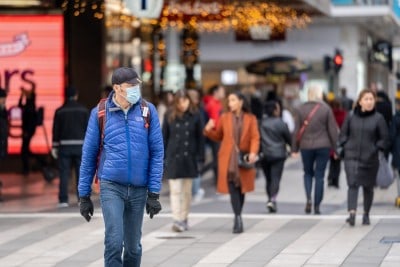Copenhagen, Feb 12 : Recent declines in Covid-19 transmission and deaths in the European region in the past few weeks were referred to as “a false sense of security” by the World Health Organization’s (WHO) Regional Director for Europe, Hans Kluge.
“Whilst this is good news, the decline in cases conceals increasing numbers of outbreaks and community spread involving variants of concern, meaning that we need to watch overall trends in transmission carefully and avoid rash decisions,” Kluge said during an online press briefing on Thursday.
The WHO official referred to the troubling coronavirus variant originally found in South Africa, which is now present in 19 European countries and increasingly being linked to outbreaks in the region’s local communities.
According to Kluge, the suppression of transmission of all variants at the current juncture required “measured decision-making” as a pre-requisite to the effectiveness of any vaccine.
He pointed out that vaccinations currently accounted for just a small part of the European response against the virus, referring to 29 out of the 37 countries currently vaccinating in the region having just completed their immunization series and vaccinated 7.8 million people, equivalent to only 1.5 per cent of the population.
Addressing the apparent disparity in vaccine distribution in the region, Kluge accentuated the divide between rich and poor countries, warning that “unfair access to vaccines” had the potential to “backfire”.
“The longer the virus lingers, the greater the risk of dangerous mutations,” he said.
In response to the vaccine disparity, Kluge said that WHO, together with the European Union, would launch a 40-million euro program to ensure effective deployment of Covid-19 jabs in Armenia, Azerbaijan, Belarus, Georgia, Ukraine and Moldova.
“Equitable access is a moral imperative, one that mitigates the pandemic’s impact on all of us, not just some,” he said.
Disclaimer: This story is auto-generated from IANS service.

